Worcester Havurah
Havurah: a lay-led Jewish community. From the root ח.ב.ר – a friend, a fastener, a comrade
The Worcester Havurah is an independent group of Jews and friends-of-Jews of all ages in and around Worcester, MA—Nipmuc territory. We come together to celebrate, sing (not necessarily on key), pray, and grapple with Jewish texts and traditions from a diasporic, liberatory framework. We are committed to Jewish ritual decoupled from Zionism, oriented instead around Torah, our relationships to each other, and our local context; this solidarity sustains us in the collective struggle against racism, white supremacy, and capitalism.
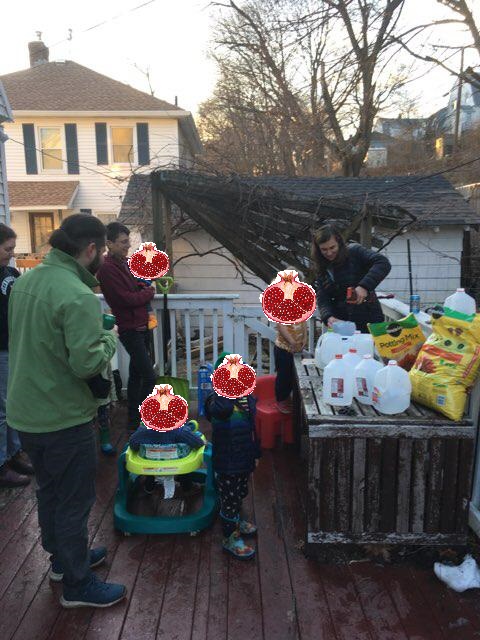
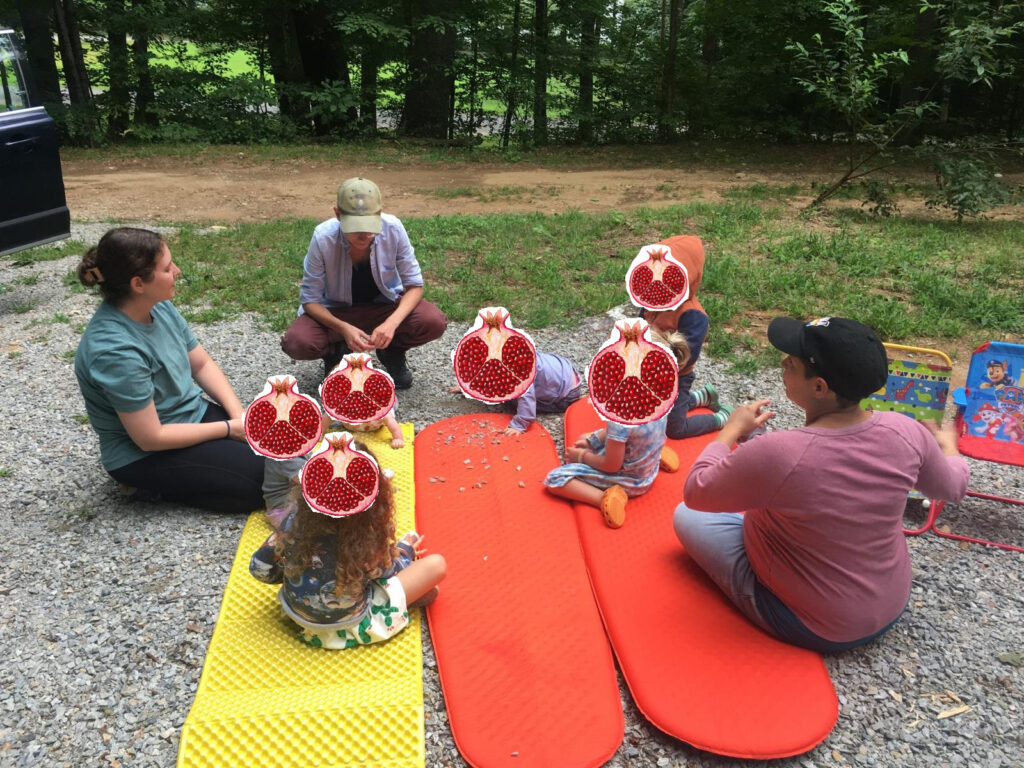
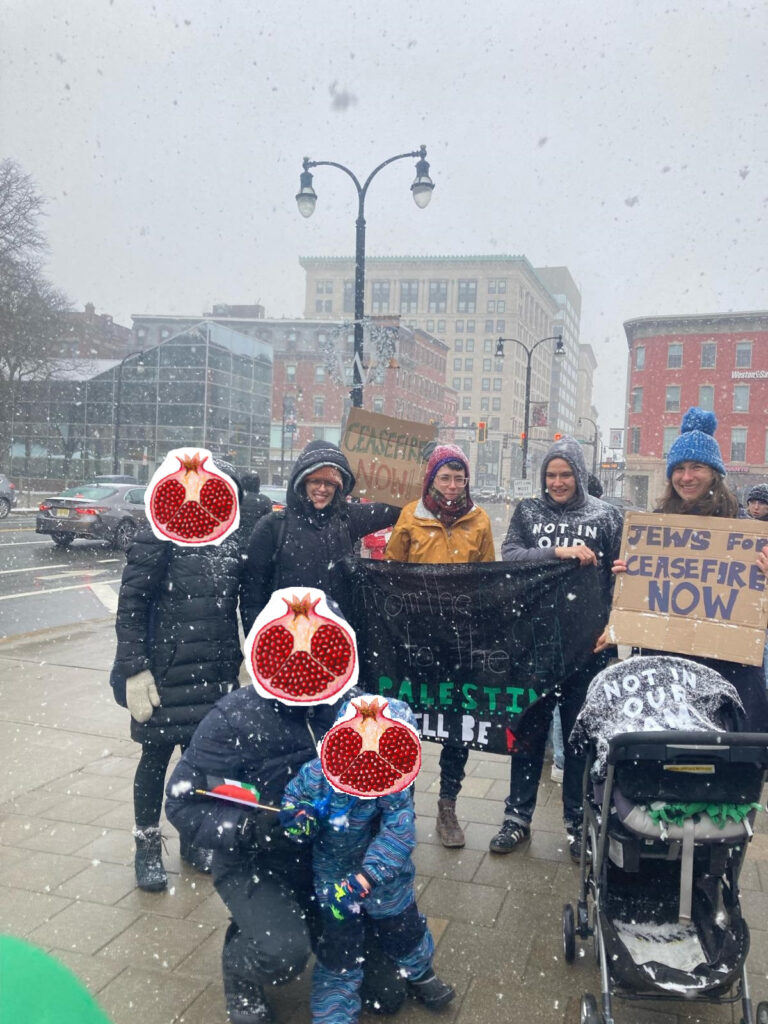
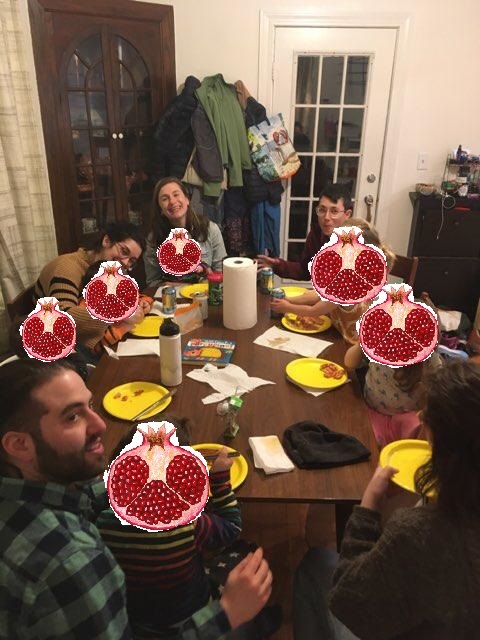
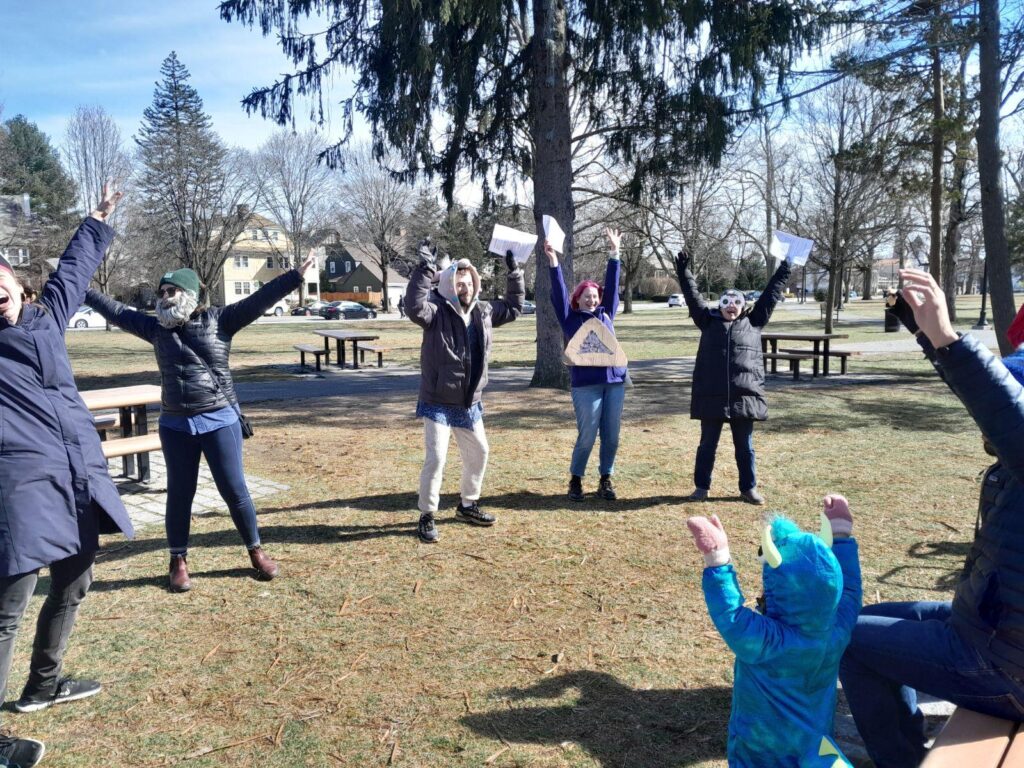
Frequently Asked Questions
What kinds of Jewish backgrounds do your members have?
Our members come from many different Jewish and non-Jewish backgrounds, including but not limited to: Jews by choice, patrilineal Jews, secular Jews, Jews who grew up steeped in Jewish community and learning, Jews who are allergic to Jewish institutions, queer and trans Jews, shomer shabbes Jews, non-monogamous/polyamorous Jews, single/unpartnered Jews, Jewish parents and children, formerly Orthodox Jews, atheist Jews, Jews from interfaith experiences, Jews of color, Jews who have never had Jewish community before, Jews who are Talmud scholars, poor Jews, disabled and neurodivergent Jews, Jews of different cultural and/or spiritual backgrounds, Jews who know the words to all the songs and Jews who know none, the Jewish-curious, and non-Jews who are friends and/or family of Jews.
What do you mean by all ages?
We are looking to create intergenerational community, from newborns to elders. Many of us wanted to create a space where our children could learn Jewish life outside of the institutional, economic, and normative family structures enforced in conventional synagogues. We involve kids in most events and parts of our service, frequently get out in nature together as families, and are planning to form a Torah School. We imagine a future where our kids are part of a community and have the tools where they can think for themselves about what it means to be Jewish and live Jewishly.
Why have a Havurah when there are so many Jewish institutions in the area?
We were founded by people with complicated relationships to power and privilege in institutional Jewish settings. That said, the hav is not a community of last resort, but rather a choice to build a spiritual and relational home that places our needs and nurturance at its heart. We chose to form a group in which a Judaism beyond Zionism is normalized, rather than marginalized or suppressed, and in which the plurality of our identities could be held with loving care. We are lay-led, meaning that no one person leads the group or our rituals or holds religious authority. Instead, we rotate ritual leadership and make decisions collectively, leaning on each member to bring their experience, their curiosity, and their growing edges to our prayer and process.
That said, some of our members have connections to area synagogues and cultural institutions as individuals or families, and we celebrate the ability to affiliate as our spiritual and material needs lead us.
Are you a political organization?
We are a group of people who connect around Jewish spirituality and traditions. Our ritual Havurah events are not focused on political action. Outside of ritual space, we show up together for political action around local, national, and international justice issues.
While our origins are inextricable from our politics, our spiritual observance and cultural expressions deserve the space and attention to grow in joyful parallel to the varied political work in which our members engage.
How do you approach environmental justice?
Jewish culture and traditions have a lot to contribute to the global and local environmental moment in reconceptualizing how we relate to the natural world and addressing climate justice issues. We are grounded in our relationship to land, not just as a diasporist community, but as members of an ecosystem.
We recognize the global and local climate crisis that has profound moral and spiritual implications. Though our ritual events are not focused on environmental topics and issues there are many intersections: from prioritizing meeting locations that are walkable for most members, to eating mostly vegetarian food, to encouraging native plants, and spending time outdoors.
Do your members identify as non-Zionist and anti-Zionist?
Many of us do. The Havurah is collectively committed to thinking about Judaism beyond a Zionist framework, in alignment with our values and aspirations for a Jewish present and future. That said, no community is a monolith, and individual members may apply these labels to themselves in different ways or not at all.
Riffing on our friends at queer Yeshiva Shel Maala: Just as Jews critical of Israel must often navigate Zionist Jewish spaces to get the Jewish learning and spirituality they crave, those weighing critical questions about their relationship to Zionism are also welcome to respectfully navigate a space that is normatively decoupled from Zionist ideology and politics.
How do you define anti-Zionist, non-Zionist, and diasporic?
From Jewish Voice for Peace: “‘Anti-Zionism’ is a loose term referring to criticism of the current policies of the Israeli state, and/or moral, ethical, or religious criticism of the idea of a Jewish nation-state. There has been debate, criticism and opposition to Zionism within Jewish thought for as long as it has existed. Jewish anti-Zionists span a political and religious spectrum, from religious and secular progressives who view opposition to Zionism as an anti-racist praxis, to ultra-Orthodox Jews who oppose Jewish dominion until the time of the Messiah, to anarchist Jews who oppose the very concept of nation-states, Jewish or otherwise. There are also many non-Jewish anti-Zionists whose perspectives may be informed by moral criticism of the policies of the Israeli government, problems with the impact of Zionist thinking in Israel on non-Jewish residents, and/or a criticism of ethno-nationalism more broadly. Many Palestinians take anti-Zionist positions or identify as anti-Zionist because of the current and historical practices of the Israeli state.”
There are lots of definitions of Non-Zionism. We understand it to be the practice of a Judaism that does not orient to the state of Israel as a normative center, object of longing or migratory aspirations, or authority on Jewish identity or ethical tradition. We aim to maintain and explore Jewish spirituality and culture that considers our tangled millennia of text, wandering, and struggle beyond the state of Israel’s relatively brief but bloody history of violence and erasure.
Diasporic means to us that we are focused on building locally, bearing the Yiddish word doykeit, meaning ‘hereness,’ in mind: we are accountable to the place, land, community, and context in which we make our home.
What should I bring to a potluck?
For kashrut* purposes and simplicity, our monthly events are vegetarian (does not need to be hechshered**). For holiday events, we sometimes have meat dishes depending on the host. We do ask that folks label any food items they bring with common allergens (e.g., tree nuts, dairy, legumes, gluten, eggs) they may contain at all Havurah events.
Additionally, in line with our diasporist values, we heed the call from Palestinian civil society for Boycott, Divestment, and Sanctions. For this reason, we ask folks not to bring Israeli products to our events.
Above all: your presence is more than enough, whether you come with dish in hand or your voice alone.
*Jewish dietary laws
** A hechsher is a rabbinical product certification, qualifying items (usually foods) that conform to the requirements of Jewish religious law.
What is your COVID/Sickness policy?
The purpose of our COVID and sickness policy is to facilitate our being together in community. We see health and safety as part of our responsibility to our community. Check out our living document of norms and expectations here. If you have questions about any part of the policy, please reach out!
How do I get involved?
If you resonate with the values of our group, fill out this Google Form to find out more information about our next event. If some of this resonates with you but you have questions or want to talk more about it, please reach out to us at Worcesterhavurah@gmail.com!
We’re excited to meet you at an upcoming event! If you are intimidated by coming to an event and would like a buddy, a hav member would be happy to meet up and introduce themselves first.
Once we’ve gotten to meet in person, you’ll be added to the Havurah email listserv and Discord channels.
